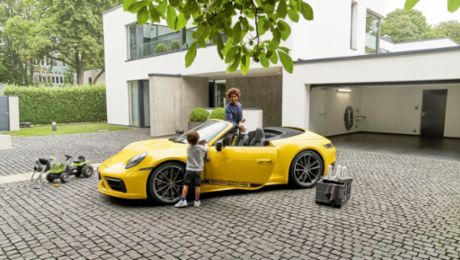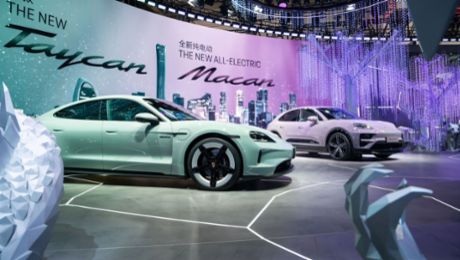At the launch of the Porsche Taycan in 2019, a state-of-the-art production facility was created at the main plant in Stuttgart-Zuffenhausen. All body and powertrain variants of the first all-electric sports car from the Porsche brand are produced there. As part of the extensive update of the model line, Porsche has also made numerous adjustments to the production process at the plant in keeping with the guiding principle of ‘smart, lean and green’.
Logistics processing consumes less packaging material. Upgraded load carriers ensure the usual high level of component protection, but no longer require outer film packaging.
In bodyshell production, body surfaces are now cleaned with lasers in a sparing and sustainable manner right before welding. Thanks to the laser cleaning process used for the first time in production, parts of the outer skin made of aluminium no longer need to be washed separately. This eliminates transport trips for washing and saves water.
Optimisations in the painting process have also resulted in innovations: during this stage of production, ultra-lightweight PVC is now used to seal welds on the underbody, bonnet and tailgate. These measures save more than 2 kg of weight per vehicle. Flange masking now takes place automatically, which is ergonomically beneficial for employees. Before the top coat is applied, bodywork areas are taped off during flange masking to secure the adhesive bond of the windscreen and the glass roof.
The battery cells are produced with renewable electricity. The bottom plate of the battery was converted from aluminium to glass fibre-reinforced plastic (GFRP). Renewable electricity and low-carbon aluminium feature in the production of the 20-inch Aero 2 alloy wheels on the Taycan Turbo. Econyl® recycled fibre continues to be used in the floor mats and flooring. It comes from an innovative manufacturing process, with the yarn made of recycled plastics.


